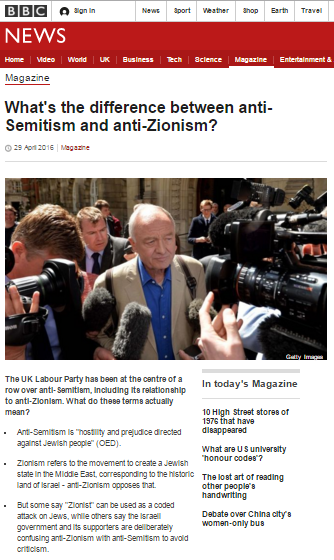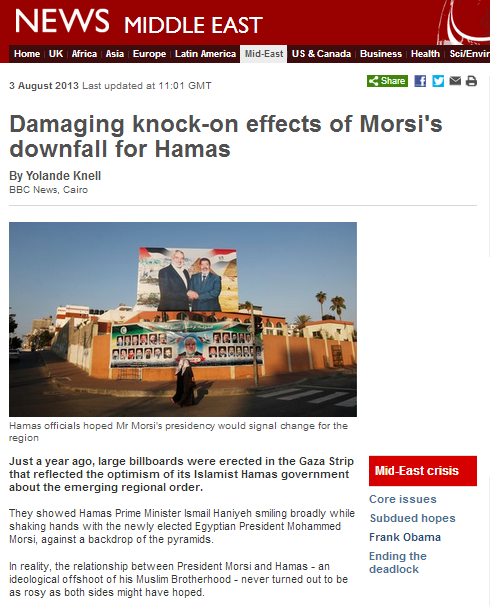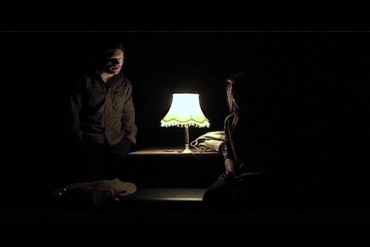Readers may recall that earlier this year, as antisemitism scandals plagued the UK Labour Party, the BBC produced a distinctly unhelpful backgrounder titled “What’s the difference between anti-Semitism and anti-Zionism?“. At the time we noted that:
“One might of course argue that the BBC’s public purpose remit – which includes “sustaining citizenship and civil society” and “promoting education and learning” – should have gone some way towards both preventing the appearance of antisemitic discourse in its own content and helping raise the British public’s awareness of antisemitism, thereby ensuring that ideologies such as those which have brought the Labour party into disrepute of late would be relegated to the status they deserve rather than becoming so commonplace within a mainstream British political party.”
With those scandals showing no sign of subsiding, earlier this month the BBC revisted the topic in two separate interviews. Given that discussion of antisemitism and anti-Zionism in Britain quite frequently boils down to non-Jews telling Jews what antisemitism is (or more often – what it is not), it was refreshing to see BBC audiences provided with a chance to hear Jewish Israeli voices.
The September 7th edition of BBC Radio 4’s ‘Today’ programme included an interview (from 02:44:10 here) with Professor Yehuda Bauer which was introduced as follows by presenter – and former BBC political editor – Nick Robinson. [all emphasis in bold added]
NR: “When does criticism of Israel amount to antisemitism? – if it ever does. That’s the question that’s been asked ever since Ken Livingstone – a regular and robust critic of the State of Israel – was suspended from the party for claiming that Hitler had supported Zionism before he went mad. Zionism, of course: the movement which led to the creation of a national home for the Jewish people. This week Mr Livingstone quoted a pamphlet from the Holocaust Memorial in Israel – Yad Vashem – in his defence.”
The “question” of course precedes Livingstone’s original remarks but those unfamiliar with that latter story can find more details here. Robinson continued:
“Well Yehudi [sic] Bauer is in London at the moment. He’s chair of the Yad Vashem Institute and professor emeritus of history and Holocaust studies at the Hebrew University of Jerusalem. Good morning to you Professor. […] Let’s begin with Ken Livingstone’s words if we can and then we’ll widen our discussion. He says – Mr Livingstone – if you go to the Holocaust Memorial at Yad Vashem in Israel, one of the pamphlets they sell to tourists there is one that talks about the deal done between Hitler and the Zionists in the 1930s, so it must be true, he says.
Yehuda Bauer replied:
“Well, I don’t want to relate to the person who said it but to the content of the things. You see what happened was that when the Nazis got to power the idea was to expel or deport or in some ways get rid of all the Jews in Germany – not only deny them citizenship but actually expel them. So they should go anywhere possible. And that was supported by the Nazi party. The Zionist movement at that time wanted to rescue the Jews of Germany and wanted to get as many out of there as possible. So a deal was struck in August 1933 – which lasted for about five and a half years – to export goods from Germany with the people who bought them in Germany, to Palestine. This is part of an effort of German Jews to leave Germany because of the policies of the Nazi government. “
Robinson: “But if Hitler, as it were, and other Nazis wanted Jews to move to what was going to become Israel, is it right to then say ‘ah well, he was supporting Zionism’?”
Bauer: “No he wasn’t. In fact the Nazi foreign office – as anyone who has studied the material knows – opposed Zionism radically. When the British government supported a partition of Palestine between Arab and Jewish states in 1937, 38, 39, all German diplomats in the world got instructions to oppose any kind of Jewish state in Palestine. There was a contradiction in the policies of the Nazis. On the one hand they wanted to get rid of all the Jews and on the other hand, to one of the major places where they could go at the time, they opposed the establishment of a Jewish state.”
Robinson: “OK.”
Bauer: “In other words, they were violently anti-Zionist but to get rid of the Jews was the priority…”
Robinson [interrupts] “OK but that…”
Bauer: “For Jews this was an essential way in order to rescue people from Germany.”
Listeners then heard the following post-factual framing of Bauer’s explanation:
Robinson: “That’s the history, as it were, and historians can debate it and discuss…”
Bauer: “No, no – that’s a fact.”
Robinson: “OK, understood. But why I was putting it that way is I wanted to take you one stage further and then say if people challenge those facts – as you call them – does that then make them antisemitic – or in effect racist – rather than people who just don’t understand the history properly?”
Bauer: “Well you see criticism of any Israeli government’s policies is certainly not antisemitism. If I criticise any kind of British government – for instance during the Thatcher period – that doesn’t make me an anti-British person.”
Robinson: “So when does it become antisemitism?”
Bauer: “It becomes antisemitism the moment people say ‘well 1948 – the establishment of a Jewish state – was a mistake’. Mistakes have to be corrected and the only way to correct that so-called mistake would be to annihilate Israel – which means actually that the people who advocate such views are on the verge of being genocidal – intentionally or unintentionally – genocidal propagandists.”
Robinson: “But isn’t it possible for me – or anybody else – to argue that I do think it was a mistake to create the State of Israel but I might have no intention at all of wiping it off the map or indeed persecuting the Jewish people?”
Bauer: “No; if you oppose the policies of the present or any past or future Israeli government – whether that’s towards the Palestinians or anything else – that’s certainly not antisemitism. Antisemitism begins the moment you say the Jews have no right to have a separate political existence as a people.”
Robinson: “Yehudi [sic] Bauer; your talk is tonight in London. Thank you very much indeed for joining us.”
It is of course impossible to determine whether or not that interview succeeded in fulfilling its apparent purpose of helping BBC Radio 4 audiences to understand the inaccuracy of Ken Livingstone’s claims but certainly that purpose was not helped by Nick Robinson’s introduction of post-factual framing.
Nevertheless, it is very rare for BBC audiences to hear a clear and concise explanation of why some forms of anti-Zionism are expressions of antisemitism and surprisingly – as we will see in part two of this post – they heard another such explanation just a week later.
Related articles:
BBC News tries – and fails – to explain antisemitism and anti-Zionism




